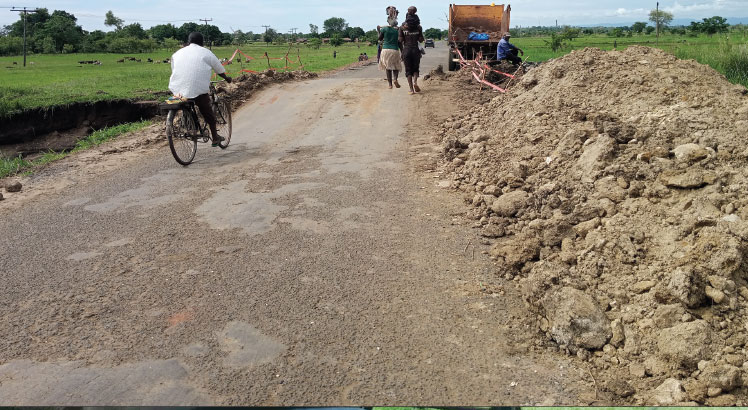Experts deplore poor govt infrastructure
Experts have deplored the poor quality of public infrastructure in the country which they attribute to corruption, lack of capacity, quest for cheap labour, improper designs and political influence in the award of contracts.
Speaking on Saturday in Lilongwe during a National Industry Construction Council (NCIC) panel discussion, industry experts firmly faulted the lack of guidelines and legislation to regulate quality of infrastructure as the main challenges.

Department of Building director Architect Sam Ngoma said currently Malawi is using borrowed regulations from other countries in the Southern African Development Community (Sadc).
He said: “Each country is supposed to have codes of ethics in construction as these are looked at by technical experts. The idea is that once you have them, punitive as they may be, they act as minimum standards.
“But in Malawi we don’t have any law which informs any kind of standards.”
This has led to infrastructure such as schools, bridges and clinics having different designs and quality being poor.
In his contribution, Malawi Engineering Institute chief executive officer Engineer Arthur Wengawenga said the challenge with such government infrastructure is that the projects, especially those under Constituency Development Fund, are mostly implemented by unqualified contractors.
He said: “We have had cases of bridges collapsing just after commissioning. We found out that in some projects, contracts are awarded to artisans who have no capacity and neither trained nor registered.”
But Malawi Institute of Architects president Architect Cathy Sani partly blamed competition on pricing among contractors during bids as another factor.
“We are being forced to compete on how low you can go on prices, yet you are expected to deliver quality work. It’s wrong! You can’t get quality work with peanuts,” she said.
NCIC chief executive officer Engineer Gerald Khonje said the meeting was important to raise awareness among stakeholders on the need to develop the necessary systems that can be used to guide the construction industry.
“We are developing an Infrastructure Delivery Management System. And so far, part of it such as the technical audits, have already been launched,” he said.
The panel discussion attracted panellists from the government’s Department of Building, engineers and architects from across the country.





